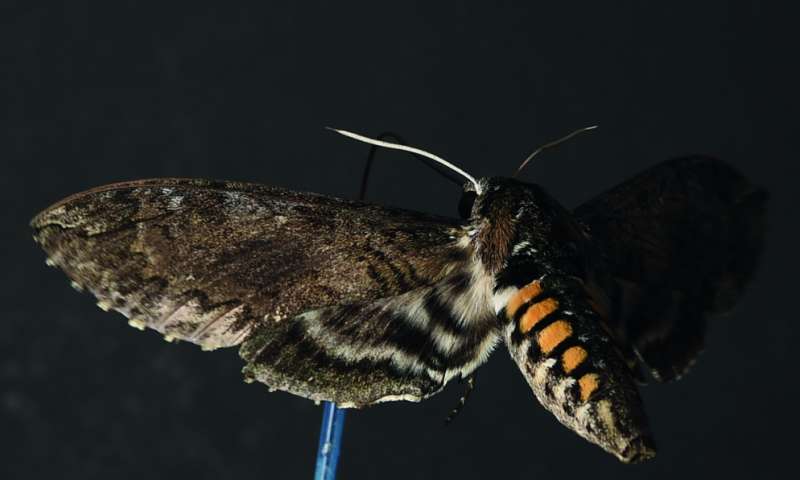For the first time, researchers are able to prove that there is an optimal speed for certain insects when they fly. At this speed, they are the most efficient and consume the least amount of energy. Corresponding phenomena have previously been demonstrated in birds, but never among insects.
Previous studies of bumblebees have shown that they consume as much energy in forward flight as when they hover, i.e. remain still in the air. New findings show that this does not apply to all insects.
Biologist Kajsa Warfvinge, together with her colleagues, has studied the large moths known as tobacco hawkmoths or Manduca sexta. The results show that these moths, like birds, consume different amounts of energy depending on their flight speed. Flying really slowly or really fast requires the most effort.
The discovery may help other researchers who study how insects migrate from one environment to another.
“I imagine that our results could be used indirectly to predict how well different species respond to changing temperatures in view of global warming. By knowing how much energy is needed to fly at different speeds, we can calculate how far and fast the animals can travel given a certain amount of energy,” says Kajsa Warfvinge.
The experiments were performed in a wind tunnel. Using a specially developed technique known as tomographic PIV, the researchers can record the way the air moves in three dimensions when the tobacco hawkmoth flaps its wings. The vortices left in the air can be seen as the insect’s aerodynamic footprint. The vortex strength reflects the amount of kinetic energy added by the insect, which in itself is a measurement of how exerting it is to fly at different speeds.
The results show that classic aviation theory can be applied also to tobacco hawkmoths; that is, it takes a lot of energy to fly slowly (one metre per second), since it is difficult to create lift at these speeds. The same applies when insects fly fast (four metres per second), but here it is the air resistance that makes the flight less efficient from an energy perspective.
“We demonstrate that moths have the same U-shaped relationship between speed and power as birds and aircrafts do. Flying slowly or fast is exhausting and requires more energy. You could say that flying at a moderate speed is optimal. The most energy-efficient speed for these moths is 2-3 metres per second,” says Kajsa Warfvinge.
However, the aim and purpose of the flight determines which speed is most beneficial. If the moths want to stay in the air for as long as possible, they should preserve their energy and maintain a speed of about 2.5 metres per second. If the goal is to fly far, they should increase their speed to about 4 metres per second. Despite the air resistance and the fact that they are unable to fly for the same amount of time, this is the optimal speed for long distances according to Science daily.
N.H.Kh

